Recently, my wife and I escaped to the mountains. We exhausted ourselves with putting together the childcare respite puzzle in the days before we left—and also with the throwing of a birthday party for the 7-year-old foster boy—but the effort was worth it. We remembered what silence was for a few days.
Technically, it was a belated 17th anniversary trip. We thought about going somewhere distant and new, but given the circumstances, we needed something close and familiar. So we went to our favorite mountain valley in Colorado and let the changing aspen leaves take light in their hands and share it, transformed, with us.
The first morning we hiked to a waterfall. We sunbathed. I jumped into the pool from midway up the lower falls. It was the coldest thing I’ve ever experienced.
That afternoon, the temperature dropped 20 degrees and it rained until nightfall. The thunder filled the valley with a deep resonance. Mountain acoustics are the best. Snow fell on the peaks 2,000 feet above us.
We went to the small, local church and were blessed by the sermon and the music. We shared our story with strangers who were really brothers and sisters.
We hiked through glowing woods and rested in hammocks, talking about and processing the heaviness in our hearts that we had also brought on this trip. The weeks leading up to our trip had been hard. At times painfully so. We were struggling, doubting the sustainability of the work we’ve been doing. On our walks and in our hammocks, we covered a lot of emotional and existential ground. We asked a lot of questions, most of which revolved around this theme: What does obedience look like now?
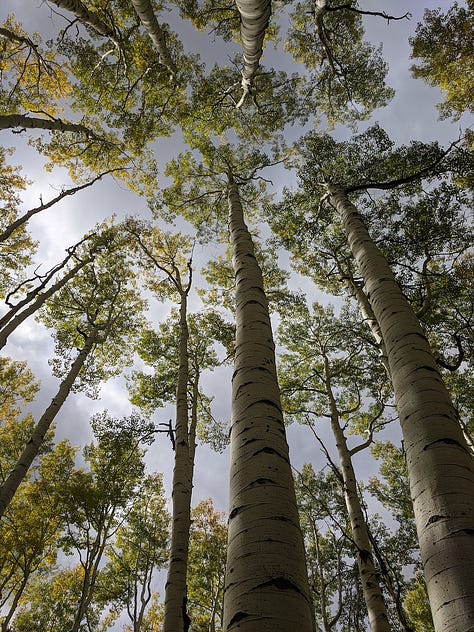


For the first time in a while, I read. From a book. (It’s amazing what you can get done without kids around.) I read the entirety of C.S. Lewis’s The Great Divorce, his dreamy and provocative little novel about Heaven and Hell. I think I wanted to read it to sharpen my perspective. To get my head up.
One of the most intriguing ideas in the book is that Heaven is infinitely more solid than Earth (to say nothing of Hell). The day-trippers visiting Heaven from Hell (or Purgatory, depending on how you read it) cut their feet on the glades of grass; they can barely pick up a leaf. The residents of Heaven, on the other hand, have grown solid and bright. But those from Hell are ghosts—mere wraiths of humanity. One of the Beings of Light, trying to convince a Ghost to come further up and further in, says, “Reality is harsh to the feet of shadows. But will you come?”
Lindsey asked me if that made me think of our walk through the woods of foster care. I didn’t until she asked me. Our feet have bled. Though I think they’re starting to firm up. Maybe.
In a later section of the book, a Spirit (Lewis’s term for those Heavenly creatures), is talking with a Ghost that he once knew on Earth. This Ghost is (or was) an artist, and he is eager to paint Heaven. But the Spirit points out that in Heaven, he won’t paint until he first learns to see again. The Ghost is not impressed. He’s too concerned with his reputation and productivity and has forgotten why he got into painting in the first place.
“Why, if you are interested in the country [Heaven] only for the sake of painting it, you’ll never learn to see the country,” the Spirit says.
“But that’s just how a real artist is interested in the country,” the Ghost retorts.
“No. You’re forgetting. That was not how you began. Light itself was your first love: you loved paint only as a means of telling about light.”
The Spirit says that such a notion is meant to be grown out of, dismissed as insufficient for the “later works” of real artistry. The Spirit urges the Ghost to come with him to a fountain, “very cold and clear,” between two hills, to drink deeply in order to cleanse his prideful palette. The Ghost isn’t sold. He shifts to looking forward to meeting interesting, “distinguished” artists in Heaven. But, again, he’s got everything exactly backwards. “The Glory flows into everyone, and back from everyone: like light and mirrors,” says the Spirit. “But the light’s the thing.”
Aspens in the fall are full of light. And the light almost feels drinkable. But the metaphors are easily mixed. These yellow and orange aspens are like torches along the trail; lighthouses along the ridge lines. They burn with an eternal intensity, even though I know the leaves will be sown in the ground in a matter of weeks.
On our last morning, the valley was socked in with fog and clouds. I walked to the lake at the end of town and found a different kind of light. Cold and obfuscating. What does obedience look like when visibility is so limited?
The sun eventually topped the peaks to the east and burned off the mist.
We headed home that afternoon and stopped by a stand of narrow-leaf cottonwoods that grow just off the highway and next to the river. On our getaways to this valley, we always take a moment to sit underneath these trees and play in the river. I remember the first time I saw these trees when we drove the valley 12 years ago. They tower above the highway, and the red canyon walls tower above them. It’s a dramatic, metaphorical scene, one that has always captured my imagination.
It was the middle of the afternoon, and the sun was overhead. We got out of the van, the yellow light refracting around us. The river called out like crystal-clear wisdom. We read Psalm 1; prayed that it would be true of us as we headed back to the fullness and sharpness of reality.
But his delight is in the law of the Lord,
and on his law will he meditate day and night.
And he shall be like a tree planted by the waterside,
that will bring forth his fruit in due season.
His leaf also shall not wither;
and look, whatever he does, it shall prosper.
We read other Psalms and prayed by the river. I could have lived in that moment for a long, long time. But now is not that time. And the refreshment I received on our trip has not been as sticky as I was hoping, and I’ve found myself wishing I was back in that valley drinking that light.
The challenge is living in the light of Reality. That is a gift of grace, I suppose, one that must be asked for anew every morning. Because on a day-to-day basis, there are so many things that feel more real and substantial than God’s Reality. I know this is a lie. I am easily shaken. Like a leaf at the end of its season. But as George MacDonald—the Teacher—explains to Lewis’s first-person narrator, “Heaven is reality itself. All that is fully real is Heavenly. For all that can be shaken will be shaken and only the unshakeable remains.”
Thanks be to God that he can make me, one so easily shakeable, unshakeable. He is the source of all merit and light. In his light do we see light (Psalm 36). Even if the uncertainty of the choices before us or the implications of those choices are hidden from view.
I think this theme is what brought me the most hope from the book: that eternity runs forwards as well as backwards; that the way I see and experience things now may not be how I see and experience them in a future state. What looks like darkness now may actually be light. Here’s how MacDonald explains it to the dreaming protagonist:
“Son,” he said, “ye cannot in your present state understand eternity. . . . That is what mortals misunderstand. They say of some temporal suffering, ‘No future bliss can make up for it,’ not knowing that Heaven, once attained, will work backwards and turn even that agony into a glory.”
So, there’s my hope. There’s the light that I pray will illuminate our perspective as we try to faithfully steward what’s been given us. Agony vs. glory, faith vs. fear, shadows vs. reality.
Thanks, as always, for reading.




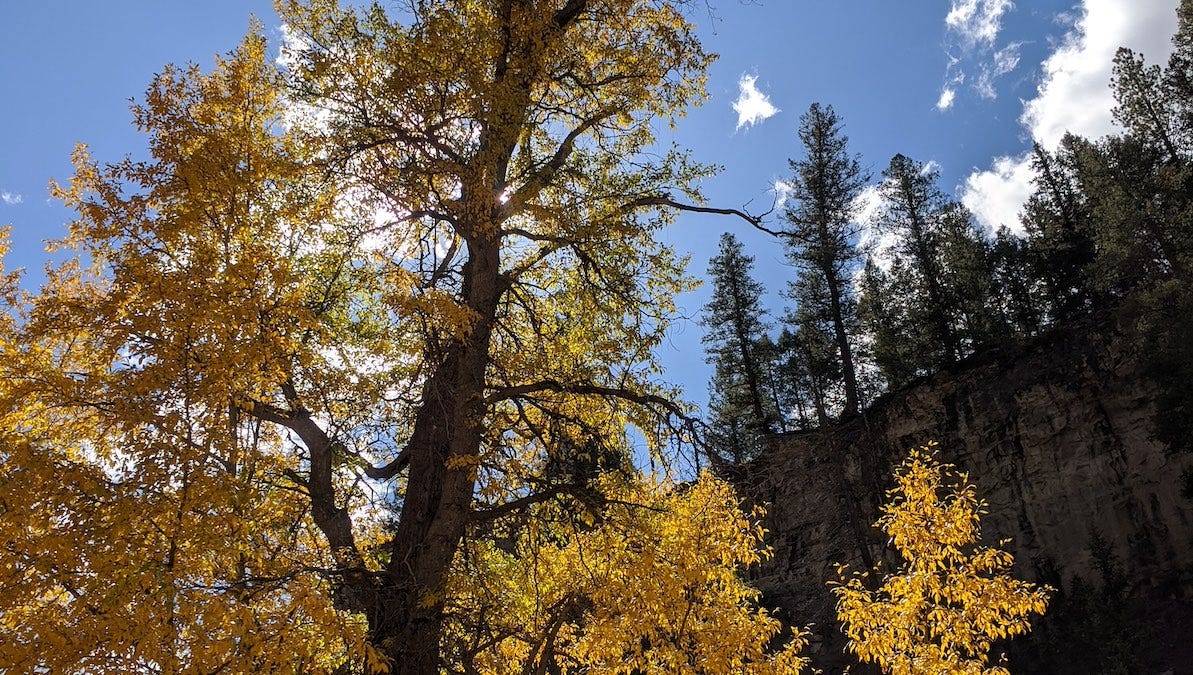
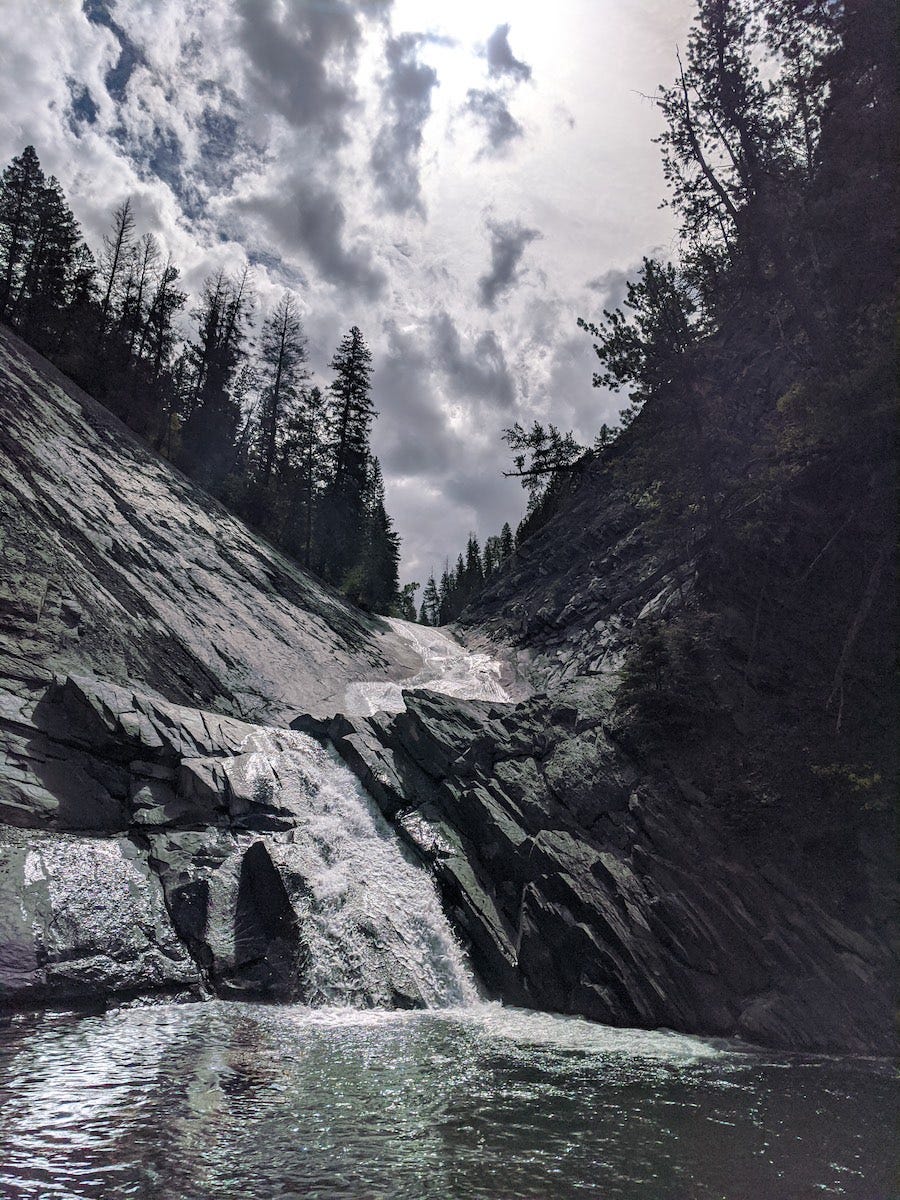
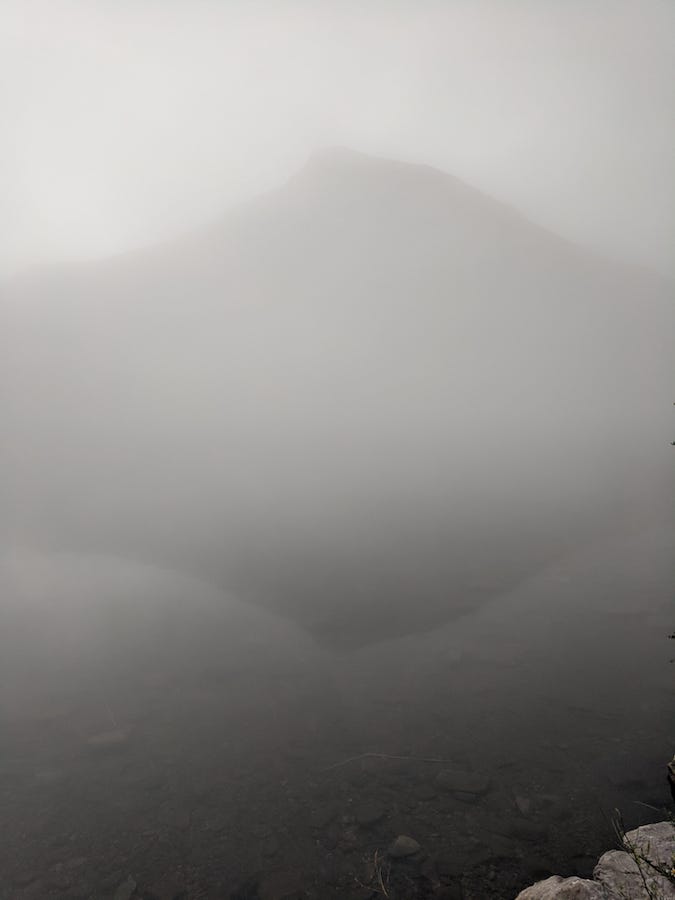
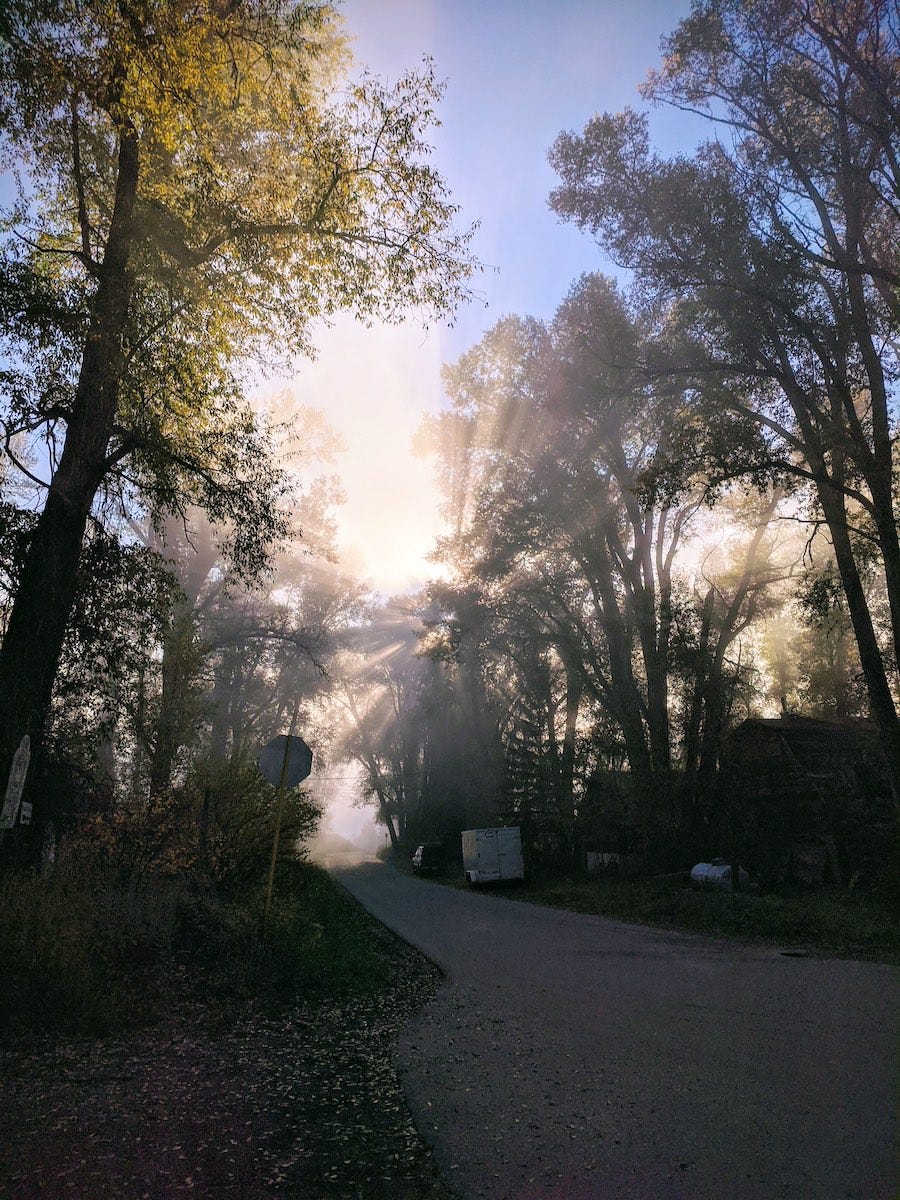

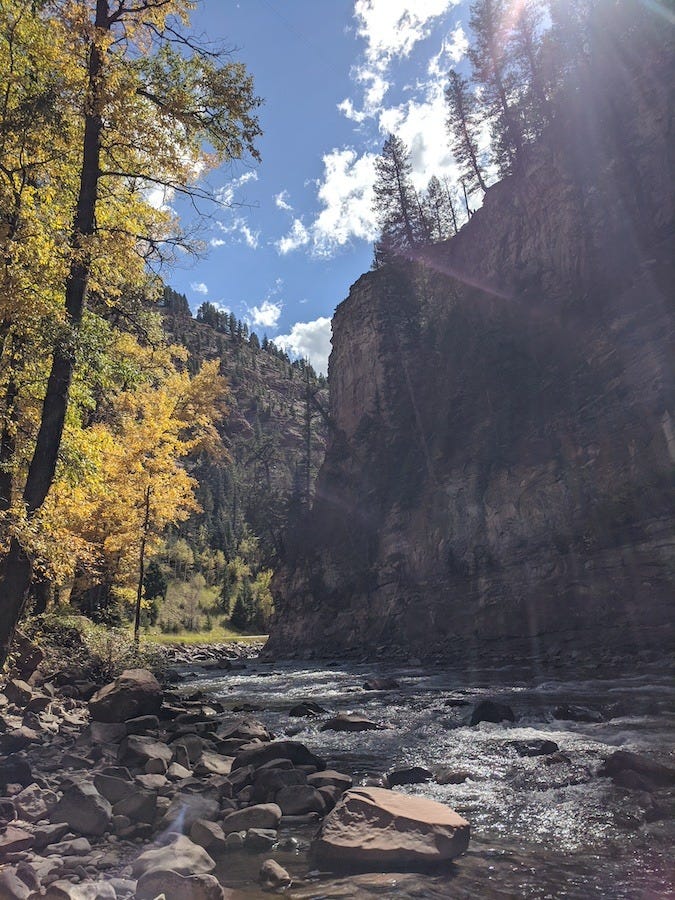
Thanks Trev. I needed to hear this today. That eternity works backwards... whew. Yes. Praise Him for that.